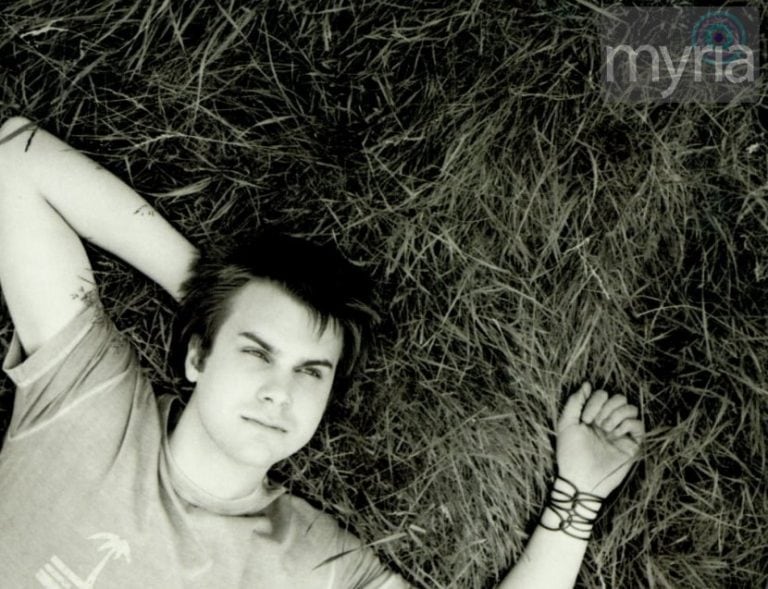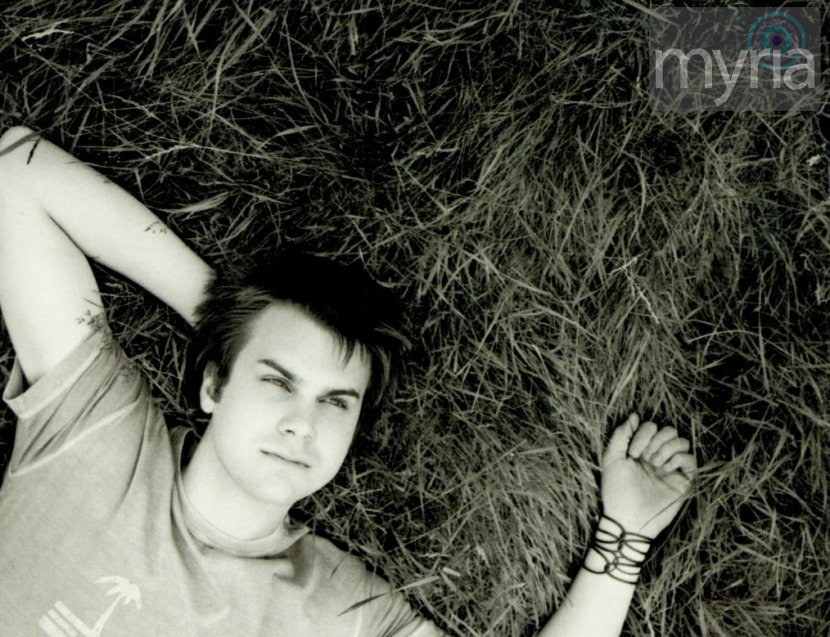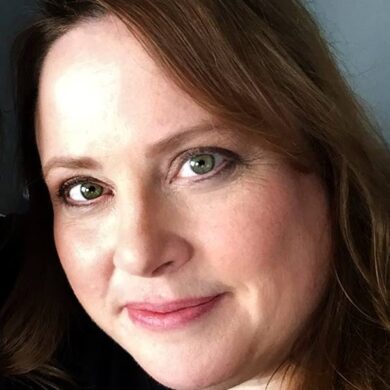The man behind the hit song “Collide” talked to us back in 2004.
When a teenager records and independently releases a self-financed album, that’s cool. When the album goes on to sell 30,000 copies based on positive word of mouth, that’s amazing.
And then when, less than two years later, that same guy spends three months in southwest London’s Olympic Studios, laying down tracks on the hallowed ground that legendary albums — from Led Zeppelin and the Rolling Stones and The Who — have been recorded… well, words like “incredible” and “extraordinary” just won’t cut it.
by Nancy J Price
All in all, not bad for a kid from Bangor, Maine. Especially for a kid from Maine named Howie.
But don’t think for a moment that any of this has come easily for Howie Day, the aforementioned 23-year-old singer/musician/songwriter. In fact, his musical career has been 18 years in the making… though it all actually started quite by accident.
“My mom went to an auction or something, and brought a piano home one day when I was five. I just sort of started banging on it, like you do when you’re five, ’cause it’s fun,” he says. “It was in the same room as the television, so when television commercials and jingles would come on, I figured out how to copy them. My mom went ‘Hmm… hmm… interesting.’ So she signed me up for piano lessons, and I did that right up until I was 12 or so.”
Unlike most kids, though, Howie didn’t have to be threatened with losing his Game Boy privileges to keep up with the lessons. “It was the opposite,” he says. “Because [the piano] was in the same room as the television, I would have to stop playing for a little while so at least dad could watch the news… It was like, ‘Stop banging on that damn piano!'”
The “cool” factors
But when puberty hit, so did the realization that — Elton aside — not too many rock stars were up there on stage tickling the ivories. “Somewhere around 13, you figure out that you want to play electric guitar, because that’s rock and that’s cool,” he laughs. “I was very opposed to the idea of having an acoustic, because I thought that was just for country music. So dad got me a Fender Stratocaster, and I started learning how to play the guitar.”
The only thing missing was a little vocal training. “The weirdest thing about that is I didn’t really start singing until I was probably 15. I kind of decided that, hey, it would be really cool to write songs and be a performer and all that. It kind of seemed necessary, at least in sort of a pop world, to sing,” he says. “So I just kind of started doing that on my own, like you do, you know — starting out in my room when no one was home just to see if I was any good at it. Slowly I started doing it for family members or friends or whatever. And they went, ‘Hey — that’s pretty good, actually.'” Within a year, Day was playing at bars around Bangor, and slowly started building up a following.
More than just a stage
On his own, Day released his debut album, Australia, in the year 2000. Supported by an insanely busy touring schedule — primarily concerts at universities and colleges — his fan base multiplied. Opening slots for numerous well-known artists, including John Mayer, The Wallflowers and Sting only helped that audience grow.
When he’s performing live, Day says, there’s a distinct difference between the big gigs and the little shows. “There’s an intimacy lost on the big audiences, but there’s also a sort of cool kind of buzz that you get from it too, like ‘Wow — there are 10,000 people here.’ It tends to be a little more high energy, and you try to capture as many people as you can; whereas with a small show, you reveal a little bit more personality. I almost feel like I’m there hanging out with them or something,” Day says. “We mix it up. I do little intimate shows just because if I go a long time without doing them, it gets kind of weird — like I’m playing at people.”
Regardless of the venue size, “Howie is a powerhouse of pure emotion and raw energy,” says Chris Hickman, the Texas-based webmaster of [now defunct] fan site HowieFan.com. “When people see him perform, they become captivated — tapping their feet, mouthing each word, and anticipating each layer of sound as Howie builds each song.”
An epic decision
Not only were Day’s fans captivated — the record companies were, too. Soon after Australia was released, several major labels started duking it out for the chance to snag this wunderkind.
Epic Records, a division of Sony Music, emerged the victor in April of 2002. Shortly after the ink dried on the recording contract, Day’s management company posted a notice on his web site, telling the fans that Epic “made us feel right at home, and understand what it is that we have tried to build over the past three years, and how they can continue to help us take that to the next level.”
“Yeah, that was one crazy year,” Day says of the early days with Epic. “Basically my whole philosophy starting out — because the question came up, ‘Are you going to sign a label deal?’ before anyone was really interested in signing me — my idea was always ‘Just go out and do it yourself.’ The hardest thing for [a major record label] to do is to build a solid foundation, a base, which is like the first 50,000 records — that core fan base.”
One key way in which Day laid that groundwork was by allowing — and encouraging — fans to audio tape his shows for their own personal use and to trade with others. Word of mouth and live show taping are, in fact, the two primary forces Hickman credits for so successfully cultivating Day’s career. “After seeing Howie live, fans spread the word obsessively,” he says. “Because of such a loyal fan base, Howie has one of the strongest Internet-based fan communities rivaling other more mainstream acts such as Jason Mraz and John Mayer. Just looking on archive.org and etree.org will show that Howie Day has the highest number of live shows available online for any solo act.”
Oz and the world
Even with a wealth of tunes available online, Australia went on to sell another 70,000 copies after Epic re-released it in June 2002 — bringing the total sales for that CD up to a cool hundred grand.
By the time sales began to slow, his loyalists were ready for something new. After months of planning and negotiating, Day was whisked off to London in the spring of 2003 to spend three months in London recording a full-length follow-up.
The finished product, Stop All the World Now, was introduced to the world in October 2003. The eleven tracks on the album had a decidedly English feel, undoubtedly due in large part to the influence of some of Day’s favorite artists, including Radiohead and The Verve. Not only were several of the musicians who recorded on it British — including Simon Jones, actually a former member of The Verve — much of the behind-the-scenes team was, too. In fact, the CD was produced by the semi-legendary (and also English) Youth, who worked with the likes of U2, Kate Bush, Dido, Paul McCartney and others.
A self-confessed fan of “moody” music, Day’s Stop All the World Now offered a dreamy, deeper, darker — yet somehow not depressing — vibe compared to some of his earlier work. It also featured a few songs with a soaring 25-piece orchestra — something else you wouldn’t find on his independent releases.
The end result was an album that was richly-layered and sophisticated, but remained accessible to pop fans. Both the mood his method drew comparisons to everyone from U2 to Coldplay, Dave Matthews Band to John Mayer — certainly not bad company to keep.
The first single off the disc was “Perfect Time of Day,” an ode to the notion of carpe diem. Next was “She Says,” a song he originally wrote in his mid-teens, and that was followed by the recent “Collide.”
Smile for the camera
Just like actors have to plug their movies and TV shows, musicians have to get out there to promote their work, too — and not just at concert halls. After signing to Epic, “For the first time, I was doing TV stuff and stuff live on television,” he says. “That kind of freaked me out the first couple of times, but you just kind of get used to it.”
It’s a good thing he was getting comfortable playing Mike Teevee, because in January 2003, Day got a booking on CBS cornerstone “Late Show with David Letterman.”
“We did Letterman the day before my birthday this year, so that was pretty cool. Kind of scary. I’d never been there before, so it’s just like, ‘Oh yeah, there’s Paul Schafer… there’s David Letterman.’ And they announce you, and just sit there and watch you.” Not your average everyday experience, to be sure. “It’s weird. I think with those shows, it becomes so surreal that you don’t get nervous, because it’s just like, ‘What the hell is going on?!'”
The quest for imperfection
So one year later, does Day think that Stop will be a tough act to follow when it’s time for a new album? “No,” he says. “I think — most musicians would probably agree — as soon as you put out a record, you have things that you want to do better next time,” says Day. “The day it comes out, there’s already things that you start to go, ‘Oh, I should have done that a little differently.’ You start to make a list in your head. I actually write things down — what I’m going to do next time.”
“I think one of the biggest things is when you’re making a record is not to over-think it too much,” he says. “I think the greatest live performances are the ones you aren’t analyzing too much — you just kind of go out and pour your heart into it. I think an album should be done kind of the same way, and not too calculated, which it tends to become nowadays, because you can make a perfect record if you want to. The technology is available so that you can fix every note and have everything be perfect. But the more you do that, the more it kind of erodes away some human sixth sense to it, I think, that people can feel.”
Arts and crafts
If the live performances are ethereal, it’s the songwriting that brings him back down to earth. Still, he never can let it be just as simple as writing the tunes one by one. “I’ll work on three songs at a time,” he says, “because when you’re sitting down to write, usually you’re feeling in a prolific mood or feeling like you want to work.”
While most people would sweat at the thought of having to be creative on demand, Day has the songwriting thing down pat. “I think the art is actually recording it, singing it, and doing it — but I think writing a song is kind of a craft. It’s like a job, and you learn how to do it and you learn different tricks to make it happen,” he says.
“For me, I work on a song for awhile and I get stuck, and then you can jump over to song number two and work on that for awhile, and when you get stuck, go to song number three — kind of jump back and forth. That’s my method — I do enjoy it. I think it’s a lot of fun. It’s really rewarding.”
Day says there’s nothing better than having a brand-new demo — fresh new songs just waiting to be finessed. In the early stages, though, don’t expect him to share. “I drive around in my car and listen to [the demo]. And if I drive by people I know, I have to roll the windows up and turn it down — or if somebody calls, I have to turn it off.”
Howie Day – The more you are, the more you need
“When I was young, I always thought if I could play music and I could make a living doing that, that would make me happy, and that’s all that I’d need,” he says. “But that changes at some point — ‘If I could be a little bit more comfortable, like tour in a bus, that would be the end all and I really have made it.’ And you get to there and you have new things. It always changes,” he says.
“I guess maybe my goals now — it’s like making a record… Yeah, you want to make a record that sells a bazillion copies and everything’s great, but I think a lot of it — all of those milestones — kind of fade away, and it becomes about making a better record musically, and writing better songs than you did last time. Sort of like trying to constantly evolve.”
He does, however, admit to being a true Type A perfectionist. “I am one of those people who is never satisfied,” Day says. “When I was a little kid, I made a spaceship out of a refrigerator box, and I was pissed off that it wouldn’t fly. Couldn’t be happy with it. It was pretty cool, too.”
If nothing but the best will do, does this mean world domination is on the agenda?
“World domination? I don’t know,” he laughs. “It’s the pursuit of happiness that everybody’s always after. I don’t know if you ever really get there.” Day sits back and gives a little shrug. “Maybe you do. Maybe I’ll figure that out later.”










